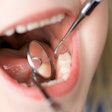A study by New Zealand researchers has found that fluoridating water does not adversely affect children's mental development and adult IQ. Their findings were published in the American Journal of Public Health (May 15, 2014).
The researchers followed nearly all aspects of the health and development of approximately 1,000 people born in Dunedin in southeast New Zealand in 1972-1973, up to age 38. They were testing the claim that exposure to levels of fluoride used in community water fluoridation is toxic to the developing brain and can cause IQ deficits.
The research focused on fluoride exposure during the first five years of residents' lives, because this is a critical period in brain development, after which IQ is known to be relatively stable, said lead author Jonathan Broadbent, BDS, PhD.
Dr. Broadbent and colleagues compared IQs of people who grew up in Dunedin suburbs with and without fluoridated water. Use of fluoride toothpaste and tablets also was taken into account.
Average IQ scores between the ages of 7 and 13 years and at age 38 were compared, as well as subtest scores for verbal comprehension, perceptual reasoning, working memory, and processing speed. Data was available for 992 and 942 study members in childhood and adulthood, respectively.
The researchers controlled for childhood factors associated with IQ variation, such as socioeconomic status of parents, birth weight, and breastfeeding, and secondary and tertiary educational achievement, which is associated with adult IQ.
"Our analysis showed no significant differences in IQ by fluoride exposure, even before controlling for the other factors that might influence scores," Dr. Broadbent said. "In line with other studies, we found breastfeeding was associated with higher child IQ, and this was regardless of whether children grew up in fluoridated or nonfluoridated areas."
Studies that fluoridation opponents say show that fluoride in water can cause IQ deficits, and which they heavily relied on in legislative hearings, have been reviewed and found to have used poor research methodology and have a high risk of bias, according to Dr. Broadbent.
"Our findings will hopefully help to put another nail in the coffin of the complete canard that fluoridating water is somehow harmful to children's development," Dr. Broadbent said. "In reality, the total opposite is true, as it helps reduce the tooth decay blighting the childhood of far too many New Zealanders."



















